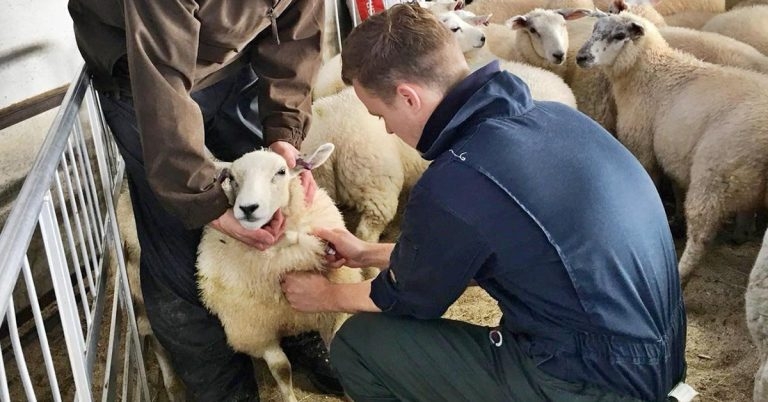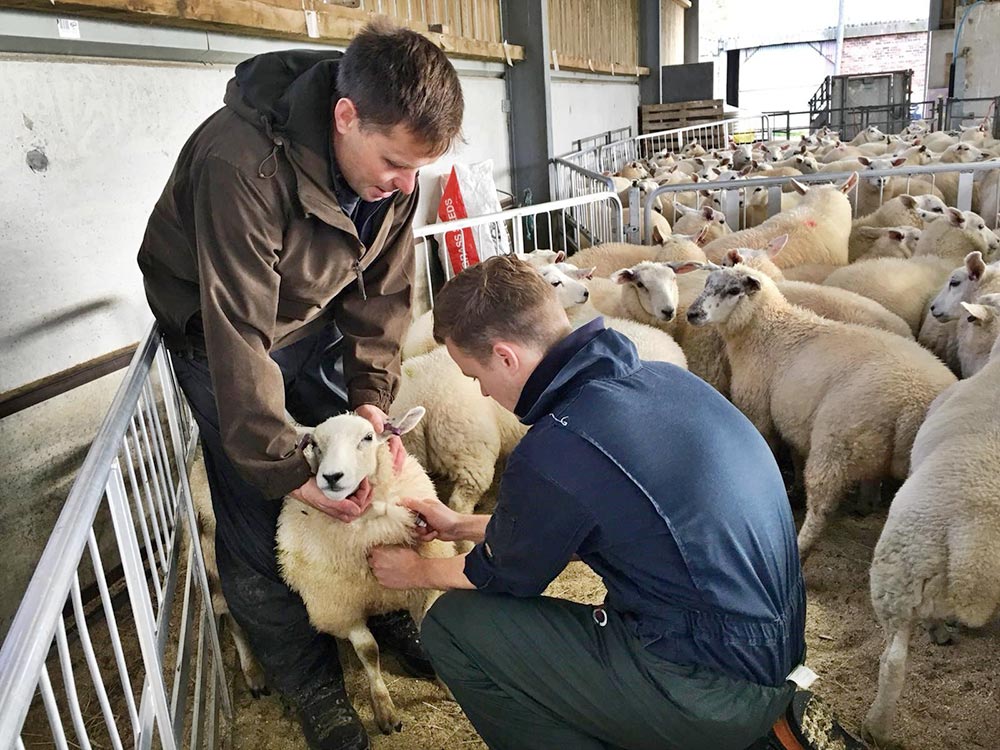10 Jun 2020
Results for XLVets study involving 25 farms find low levels of infection, and point to the need for a more targeted flukicide strategy drawn up between farms and vets.

Ed Hill from Thrums Veterinary Group blood samples sheep.

A study into fluke in sheep has revealed low levels of infection across the country – with seroconversion variable between farms, but generally occurring very late in the season.
A total of 24 independent veterinary practices – members of XLVets – took part in the study, which was sponsored by Norbrook.
The collaborative study involved each practice blood testing a cohort of six lambs on 25 individual farms from 16 weeks of age to look for evidence of antibodies to liver fluke.
The findings identified very low levels of infection throughout the country – with seroconversion being variable between farms, but generally occurring very late in the season, with just a few lambs affected.
With some farms likely to be preparing to use flukicides to reduce pasture contamination and with continuing concerns about resistance to some products, XLVets said the study shows a more targeted strategy by vets working with sheep keepers would reduce the likelihood of resistance developing – particularly to triclabendazole.
Practices from Orkney to Devon took part in the study. Despite farms with a history of fluke being chosen, only one positive result was generated in July, with another in August.
In total, 11 farms had positive results from June to December, with most showing one or two lambs out of six seroconverting later in the year.
By 16 weeks, lambs have lost their maternally derived antibodies to fluke, so any presence of them in lambs older than this reflects exposure to the parasite. Antibodies are normally detected two weeks postinfection, so young animals act as sentinels for the rest of the flock.
Mark Thompson of Craven Farm Vets in North Yorkshire, which took part in the study, said: “I did not expect to see positive results as late in the year. I expected a positive result earlier (September/October) as the farm is a very wet farm with a long-standing issue with fluke.
“Also, the weather in the area has been ideal for the intermediate host and fluke development on the pasture.”